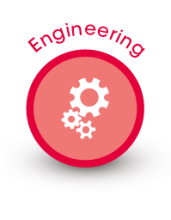
SPRING - Decision Making Methodology and Interactive Workshop Example
As part of the Project SPRING review of decision-making methods for selecting technology for resource/energy efficiency improvements in industry, we have produced an educational module to describe a good-practice methodology. Supporting the Methodology Module, an interactive example that enables a team to practise various elements of best practice decision-making methodology has been developed. The background problem is generic – based on assessing technologies to improve the energy footprint of an office building on a process industry site – but enables the participants to explore the outcomes of a variety of possible decisions based on limited data.
This methodology is currently available in beta version here: Decision-Making Methodology
The interactive workshop example is available here: Decision-Making Example

Project website: www.spire2030.eu/spring
SPRING is a Coordination and Support Action project with the objective of increasing progression towards the SPIRE goals and enhancing project return on investment by addressing the needs and barriers of those who make the decisions to adopt process innovations in industry.
This project has received funding from the European Union's Horizon 2020 Research and Innovation programme under grant agreement No 767412.
The methodology outlined is an example of a good-practice approach to decision-making in industry. If adopting a new appraoch to decision-making in industry, we recommend using an independent facilitator/ trainer to adapt the methodology to business specific needs.











